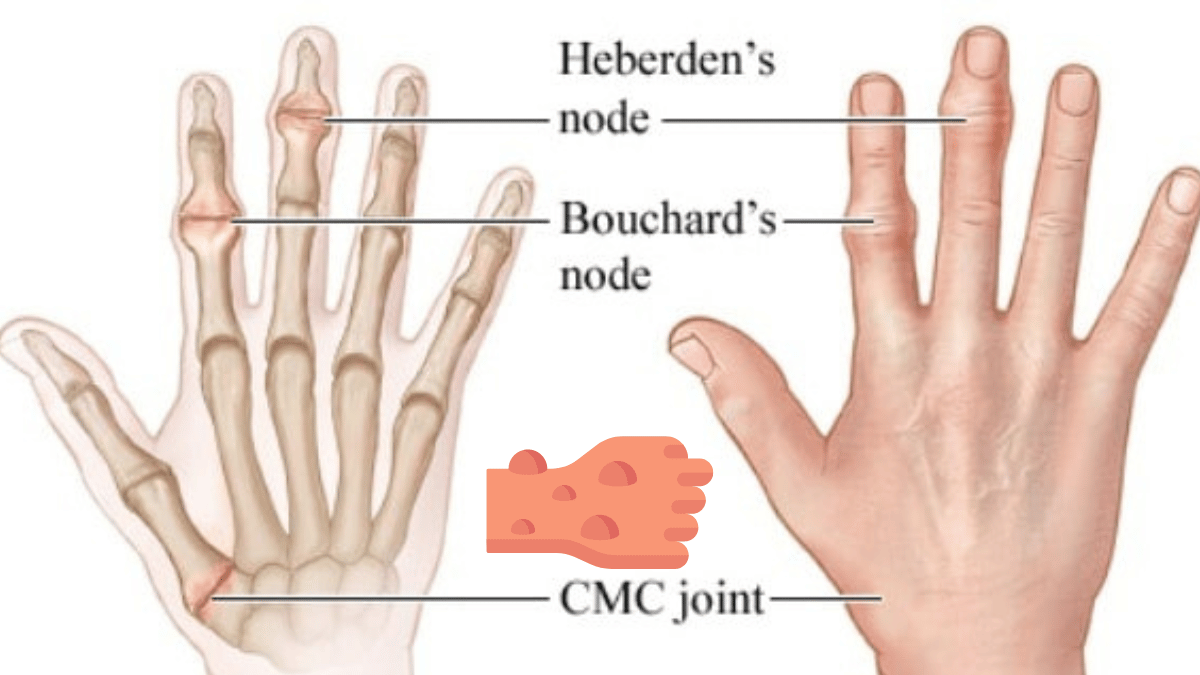Symptoms of Schizophrenia
Schizophrenia is a complex mental disorder that impacts an individual’s thinking, feelings, and actions. It typically begins in late adolescence or early adulthood, though it can develop at any age. The symptoms are generally divided into three categories: positive, negative, and cognitive.
Positive Symptoms
Positive symptoms are those that enhance or increase a person’s experience.. The most common are hallucinations, such as hearing voices that aren’t there (auditory hallucinations).Delusions, or strongly held false beliefs disconnected from reality, are also commonly seen. These might include feeling persecuted (paranoid delusions), believing one has special powers (grandiose delusions), or thinking that random events have special personal meaning (delusions of reference).
People may also have disorganized thinking, where speech becomes incoherent or hard to follow. Disorganized behavior can also occur, which may include unpredictable actions or a lack of movement (catatonia).
Negative Symptoms
Negative symptoms reflect a loss or reduction in normal functioning. People may show reduced emotional expression (e.g., flat facial expressions) or feel a lack of motivation (avolition), making it difficult to engage in activities or take care of daily tasks. They might also have alogia, where their speech is reduced to brief, monosyllabic answers, and they often withdraw socially, isolating themselves from family and friends.
Cognitive Symptoms
Cognitive symptoms affect memory and thinking. Impaired attention makes it hard to focus or complete tasks. Working memory problems make it difficult to retain and use information, and executive dysfunction impacts decision-making and organization, making it challenging to manage daily responsibilities.
Schizophrenia is a complex disorder, and while the exact cause is not fully understood, research suggests that it develops due to a combination of genetic and environmental factors. These factors likely interact in ways that affect brain chemistry, leading to the symptoms associated with schizophrenia.
Genetic Factors: Is Schizophrenia Hereditary?
Genetic factors play a significant role in the development of schizophrenia, although the disorder does not follow a simple inheritance pattern. People with a family history of schizophrenia are at a higher risk of developing the disorder, but most individuals with schizophrenia do not have a direct family member with the condition.
- Hereditary Risk: If a person has a first-degree relative (like a parent or sibling) with schizophrenia, their risk of developing the disorder is higher—about 10% compared to the general population’s risk of around 1%. The risk is even higher if both parents have schizophrenia or if the individual has a twin with the disorder.
- Genetic Variability: Research suggests that multiple genes contribute to schizophrenia, but no single gene causes it on its own. These genetic variations likely affect how the brain develops and functions, making a person more vulnerable to environmental triggers.
Environmental Factors: Triggers and Influences
While genetics play a role, environmental factors are also believed to contribute to the onset of schizophrenia, especially in individuals who are genetically predisposed. These factors can include:
- Prenatal Factors: Exposure to infections, malnutrition, or stress during pregnancy can increase the risk of schizophrenia in the child. For example, maternal exposure to viruses like influenza during pregnancy has been linked to a higher risk of schizophrenia in the offspring.
- Stress and Trauma: Traumatic life events or high levels of stress, especially during adolescence or early adulthood, may trigger the onset of schizophrenia in those who are genetically vulnerable.
- Substance Use: Certain substances, particularly cannabis, amphetamine, and cocaine, can trigger schizophrenia or make symptoms worse, especially in individuals already at risk. Heavy drug use during adolescence, for instance, is linked to a higher risk of developing schizophrenia later in life.
Brain Chemistry: The Role of Neurotransmitters
Changes in brain chemistry are central to the development of schizophrenia. The most well-researched aspect of this is the role of dopamine, a neurotransmitter that helps regulate mood, reward, and motor control. Imbalances in dopamine pathways in certain parts of the brain are thought to contribute to the symptoms of schizophrenia.
- Dopamine Hypothesis: This theory suggests that an overactivity of dopamine transmission in certain brain regions, particularly the mesolimbic pathway (involved in motivation and reward), may contribute to positive symptoms like delusions and hallucinations. On the other hand, underactivity of dopamine in the prefrontal cortex (involved in decision-making and cognitive function) might explain negative and cognitive symptoms, such as lack of motivation and impaired memory.
- Glutamate and Other Neurotransmitters: There is also evidence that other neurotransmitters, such as glutamate (which plays a role in brain communication and learning), and serotonin are involved in schizophrenia. Disruptions in these systems may contribute to a variety of symptoms, including cognitive difficulties and mood disturbances.
Brain Structure: Abnormalities in the Brain
Research has also shown that people with schizophrenia may have structural brain abnormalities, such as:
- Enlarged Ventricles: Many individuals with schizophrenia have enlarged fluid-filled cavities in the brain (ventricles), which suggests a loss of brain tissue in certain areas.
- Hippocampus and Prefrontal Cortex: The hippocampus (involved in memory) and prefrontal cortex (important for decision-making and emotional regulation) often show reduced activity or size in people with schizophrenia, which may contribute to the cognitive and negative symptoms.
Treatment for Schizophrenia
Schizophrenia is a chronic and complex mental health condition that typically requires a combination of treatments to manage symptoms effectively. The primary treatment approaches include medication (mainly antipsychotic drugs) and psychotherapy (such as Cognitive Behavioral Therapy or CBT). These treatments work together to alleviate symptoms, prevent relapse, and improve overall functioning.
Available Treatments for Schizophrenia: Medications and Therapy
Antipsychotic Medications
Medications are the cornerstone of schizophrenia treatment, as they help manage the symptoms, such as hallucinations, delusions, and disorganized thinking.
- First-Generation (Typical) Antipsychotics:
These were the first class of drugs developed for schizophrenia and include medications such as haloperidol (Haldol) and chlorpromazine (Thorazine). They are effective at controlling positive symptoms (e.g., hallucinations, delusions) but tend to have more severe side effects, such as movement disorders (extrapyramidal symptoms), tardive dyskinesia (involuntary movements), and sedation. - Second-Generation (Atypical) Antipsychotics:
Newer drugs like clozapine (Clozaril), risperidone (Risperdal), olanzapine (Zyprexa), and aripiprazole (Abilify) tend to have a lower risk of motor side effects. They are often preferred because they can be more effective at addressing both positive and negative symptoms (e.g., emotional withdrawal, lack of motivation). However, they may be associated with other side effects like weight gain, diabetes, and metabolic syndrome. - Choosing the Right Medication:
Finding the right medication is a trial-and-error process, as the effectiveness and side effect profiles vary for each individual. Often, it requires careful monitoring and adjustment to achieve optimal symptom control.
Hospitalization and Inpatient Care
During periods of severe symptoms or a first episode of schizophrenia, hospitalization may be necessary to stabilize the individual, ensure safety, and provide a structured environment. Hospitalization can also be an opportunity for doctors to adjust medications and monitor side effects.
How Antipsychotic Medications Help in Schizophrenia Treatment
Antipsychotic medications primarily target the dopamine system in the brain, which is believed to play a key role in the development of schizophrenia. In particular, these medications work by blocking dopamine receptors (D2 receptors) in the brain, which helps reduce hallucinations, delusions, and thought disturbances.
- Positive Symptoms: These include hallucinations (e.g., hearing voices), delusions (e.g., believing you have special powers or are being persecuted), and disorganized thinking. Antipsychotics are generally very effective at controlling these symptoms.
- Negative Symptoms: These include emotional blunting, social withdrawal, and lack of motivation. While antipsychotics can help with some negative symptoms, they are typically less effective in this regard, and additional treatments, such as therapy, may be necessary.
- Side Effects: One challenge with antipsychotic medications is their side effects. While newer medications tend to have fewer motor-related side effects, they may still cause weight gain, metabolic changes, or sedation. Regular monitoring by healthcare providers is essential to mitigate these risks.
Cognitive Behavioral Therapy (CBT) and Other Therapies
Although medications are critical in treating schizophrenia, psychotherapy can play an important complementary role. Cognitive Behavioral Therapy (CBT) and other therapeutic approaches aim to help individuals manage symptoms, improve coping skills, and enhance social functioning.
Cognitive Behavioral Therapy (CBT)
CBT is one of the most widely used forms of psychotherapy for individuals with schizophrenia. Unlike traditional forms of therapy, CBT for schizophrenia does not focus solely on exploring past events or uncovering unconscious material. Instead, it is goal-oriented and practical, focusing on:
- Managing Symptoms: Helping the individual recognize and challenge delusional thinking, hallucinations, and other symptoms. CBT encourages people to question the reality of their experiences and to develop more adaptive, balanced ways of thinking.
- Improving Coping Strategies: Teaching coping techniques for managing stress, anxiety, and other emotional challenges that can accompany schizophrenia. Learning skills for managing distress can help improve overall quality of life.
- Enhancing Functioning: CBT can also help improve interpersonal relationships, social skills, and the ability to function in daily activities like work or school.
Research shows that CBT can reduce symptom severity, improve insight (i.e., understanding of the illness), and decrease the likelihood of relapse when combined with medication.
Other Therapies
- Family Therapy: Schizophrenia can strain family dynamics. Family therapy provides education, emotional support, and communication skills for family members to help them understand the illness and better support their loved one.
- Social Skills Training: This therapy focuses on helping individuals develop practical social skills to navigate everyday situations, improving communication, and fostering positive relationships.
- Supportive Therapy: Offers emotional support and encourages the individual to express their feelings and concerns. This can reduce feelings of isolation and improve coping with the challenges of living with schizophrenia.
- Assertive Community Treatment (ACT): This is a team-based, community-oriented service that provides intensive support to individuals with severe mental illness. The ACT team often includes doctors, nurses, social workers, and other specialists who help manage treatment and support recovery in the community.
Conclusion
Schizophrenia is a serious and chronic mental health condition that requires a multifaceted treatment approach to manage its symptoms and enhance the quality of life of those affected. The cornerstone of treatment is antipsychotic medications, which help control the primary symptoms such as hallucinations and delusions. While newer second-generation antipsychotics tend to have fewer side effects compared to older medications, they still require careful monitoring for effectiveness and potential risks.
However, medication alone is not sufficient for many individuals. Psychotherapy, especially Cognitive Behavioral Therapy (CBT), plays a crucial role in helping individuals cope with their symptoms, improve social functioning, and gain better insight into their illness. Other therapeutic approaches, such as family therapy, social skills training, and supportive therapy, further contribute to long-term recovery and well-being.
FAQ Section
What is the primary treatment for schizophrenia?
Antipsychotic medications are the primary treatment for managing schizophrenia symptoms.
What is the role of Cognitive Behavioral Therapy (CBT) in schizophrenia?
CBT helps individuals manage symptoms, improve coping strategies, and enhance social functioning.
What are antipsychotic medications?
Antipsychotic medications are drugs that help control hallucinations, delusions, and disorganized thinking in schizophrenia.
What are the side effects of antipsychotic medications?
Side effects can include weight gain, metabolic changes, sedation, and movement disorders, depending on the medication.
Can schizophrenia be cured?
Schizophrenia is a lifelong condition, but with treatment, symptoms can be managed, and individuals can lead fulfilling lives.
Is hospitalization necessary for treating schizophrenia?
Hospitalization may be required during severe episodes to stabilize symptoms and adjust treatments.



